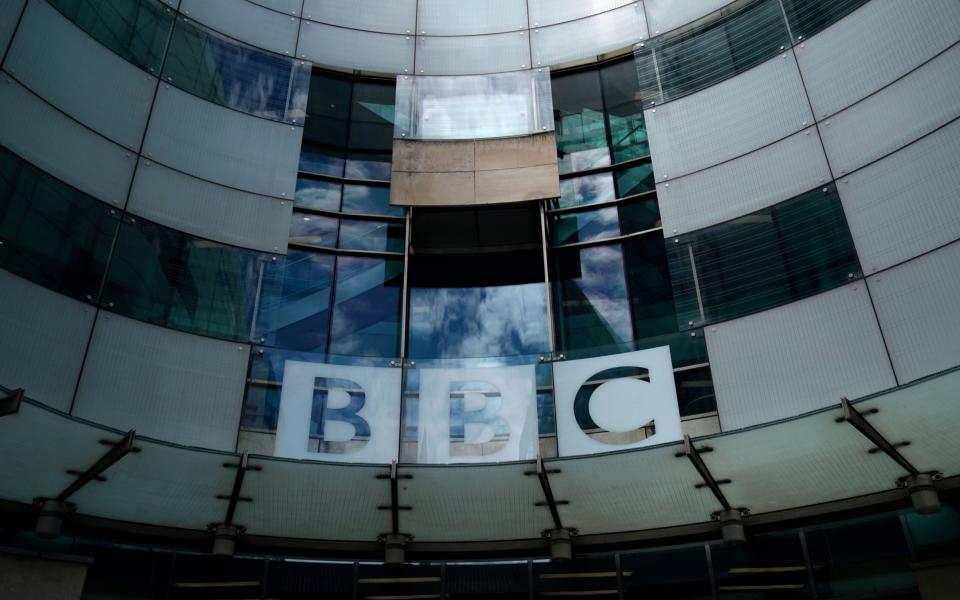Millions of pensioners face threat of criminal action if they don't pay BBC licence

Millions of pensioners face the threat of criminal action over a two-year period if they fail to start paying for a television licence, after it emerged that the Government wants a lengthy consultation before any change to the law.
The BBC angered ministers and elderly campaigners by announcing on Thursday that it will start to force millions of elderly people to pay the £157.50 annual charge in just three weeks time.
On Friday leading elderly rights charity Age UK told The Telegraph that "a small number of over-75s have told us that they may deliberately break the law as a matter of principle, to express their disgust" at the BBC's plans.
An estimated three million over-75 pensioners are now faced with the prospect of having to organise how to pay for the previously free service by Aug 1 or risk a criminal prosecution.
A further 1.5 million over-75s who receive pension credit will continue to receive the free licence fee.
Oliver Dowden, the Culture secretary, pictured below, warned the BBC on Thursday evening that the decision would "have an impact" on whether non-payment is downgraded from a criminal offence in the courts.
Mr Dowden's comments raised hopes that the Government could move swiftly to remove the threat of a criminal prosecution - and possibly make non-payment a civil offence - for pensioners who fail to set up a direct debit in time.
However it emerged on Friday that Mr Dowden had said in April that decriminalising non-payment of the licence fee would take "a large number of months, taking you through to 2021, 2022".

This was because of the need for another consultation, which takes typically three months, plus more time for the Government to respond, before a change in the law is pushed through Parliament.
Mr Dowden told MPs in April: "We will respond to the consultation. We have indicated there will probably be a further consultation on whatever the alternative was, and then that would require primary legislation.
"That does point to a period of a large number of months, taking you through to 2021, 2022."
Caroline Abrahams, charity director at Age UK said:"Most older people are model citizens and would be horrified at the idea of breaking the law, let alone being dragged before a criminal court.
"The fact that the BBC's new scheme is set to be introduced at a time when it is still a criminal offence to watch TV without a licence will simply increase the anxiety many older people already feel about having to get to grips with a new TV licence regime."
She added: "We know that some older people are aware that the BBC intends to introduce its scheme from August 1st and will be deeply concerned to ensure they have done everything necessary to 'comply', with only three weeks now to go.
"In fact, the BBC has said that no one has to do anything at this stage until they receive a letter, but that nuance is likely to have eluded some older people, who will be fearful of getting it wrong and finding themselves on the wrong side of the law."
A BBC spokesman said: “We know that the very large majority of citizens are law abiding and the level of licence payments in the general population is very high. We have one of the lowest evasion rates.
"Our focus is on making this transition as easy as possible. Over 1.5 million households are eligible for a free licence and for those who have to pay they have a range of options to choose from without them having to leave their homes should they not wish to.
"Decriminalising the licence fee could cost the BBC up to £1 billion over five years and have a big impact on programmes and services.”
Julian Knight, the chairman of the Commons' Digital Culture, Media and Sport committee, said the Government had to decide "quickly" whether to decriminalise non-payment of the licence fee.
A Digital, Culture, Media and Sport spokesman said: "We are bitterly disappointed by the BBC's decision not to extend the over-75 licence fee concession beyond August.
"The BBC was right to delay the start date of its new policy but lockdown restrictions easing does not mean older people value television any less than they did a few weeks ago. "The BBC remains responsible for the concession and for setting out what those affected will now need to do.
"It must now look urgently at how it can use its substantial licence fee income to deliver for audiences of all ages, including by making efficiencies."
A Whitehall source said that the department had received 150,000 responses to a consultation on whether to decriminalise non-payment by April 1 adding: "We are assessing those responses and will respond in due course."

